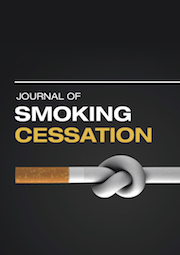Article contents
Electronic cigarette use and tobacco cessation in a state-based quitline
Published online by Cambridge University Press: 20 March 2019
Abstract
Evidence is mixed on e-cigarette's effectiveness as a tobacco cessation aid. Research suggests that e-cigarette users face greater barriers to quitting tobacco.
To examine the association between e-cigarette use and tobacco cessation outcomes among quitline callers.
We examined 2,204 callers who enrolled and completed 7-month follow-up surveys between April 2014 and January 2017. We examined the association between any e-cigarette use and tobacco cessation. We also evaluated these relationships by e-cigarette use patterns between enrollment and 7-month follow-up: sustained, adopted, discontinued, and non-use. We used multivariable logistic regression to control for caller characteristics, tobacco history, and program utilization.
Overall, 18% of callers reported using e-cigarettes at enrollment, follow-up, or both. Compared to non-users, e-cigarette users were more likely to be younger, non-Hispanic, and report a mental health condition. The adjusted odds of tobacco cessation were not statistically different for callers who used e-cigarettes compared to those who did not (adjusted odds ratios = 1.02, 95% confidence interval 0.79–1.32). Results were similar when examining cessation by patterns of e-cigarette use.
E-cigarette use was not associated with tobacco cessation. This suggests that e-cigarette use may neither facilitate nor deter tobacco cessation among quitline callers. Future research should continue exploring how e-cigarette use affects quitting.
- Type
- Original Articles
- Information
- Copyright
- Copyright © The Author(s) 2019
References
- 1
- Cited by


